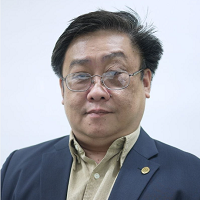 LIU.jpg)
Jiangchuan Liu is a Full Professor in the School of Computing Science, Simon Fraser University, British Columbia, Canada. He is a Fellow of The Canadian Academy of Engineering, an IEEE Fellow, and an NSERC E.W.R. Steacie Memorial Fellow. He is also a Distinguished Guest Professor of Tsinghua Shenzhen International Graduate School. He received the BEng degree (cum laude) from Tsinghua University, Beijing, China, in 1999, and the PhD degree from The Hong Kong University of Science and Technology in 2003, both in computer science. He is a co-recipient of the inaugural Test of Time Paper Award of IEEE INFOCOM (2015), ACM SIGMM TOMCCAP Nicolas D. Georganas Best Paper Award (2013), ACM Multimedia Best Paper Award (2012), and IEEE MASS Best Paper Award (2021). His research interests include multimedia systems and networks, cloud and edge computing, social networking, online gaming, and Internet of things/RFID/backscatter. He has served on the editorial boards of IEEE/ACM Transactions on Networking, IEEE Transactions on Network Sciences and Engineering, IEEE Transactions on Big Data, IEEE Transactions on Multimedia, IEEE Communications Surveys and Tutorials, and IEEE Internet of Things Journal. He is a Steering Committee member of IEEE Transactions on Mobile Computing and Steering Committee Chair of IEEE/ACM IWQoS (2015-2017). He was TPC Co-Chair of IEEE INFOCOM'2021 and IEEE Satellite’2022.

Eric Tsui is the Associate Director of the Behaviour and Knowledge Engineering (BAKE) Research Centre as well as a Senior Project Officer at the Educational Research Centre at The Hong Kong Polytechnic University. Since 2015, he served as the Managing Regional Editor (Asia) of the Journal of Knowledge Management and had led and delivered a Master Knowledge Management program for over 15 years. Eric has also championed many technology-enhanced teaching and learning projects and is a crusader of technology-enhanced learning at the university. His research interests include Knowledge Management technologies, blended learning, cloud services, and collaborations. Eric is the leader of a Professional Certificate program that consists of two Massive Open Online Courses (MOOCs) on edX that cover the topics of Knowledge Management, Big Data, and Industry 4.0. He holds B.Sc. (Hons.), PhD, and MBA qualifications. A recipient of many Knowledge Management and E-Learning international awards, including the Knowledge Management Award for Excellence in 2021 and among the top 50 most influential people in tacit knowledge management by GO-TKM in 2023, Professor Tsui was twice listed as an exemplary/outstanding academic in PolyU Annual Reports in the last 7 years.

Ming Li is currently a ``Shuang Long Scholar'' Distinguished Professor at the Zhejiang Key Laboratory of Intelligent Education Technology and Application, Zhejiang Normal University, China. He received his PhD degree from the Department of Computer Science and IT at La Trobe University, Australia, in 2017. He completed two Postdoctoral Fellowship positions with the Department of Mathematics and Statistics, La Trobe University, Australia, and the Department of Information Technology in Education, South China Normal University, China, respectively. He has published in top-tier journals and conferences, including IEEE TPAMI, Artificial Intelligence, Computers & Education, British Journal of Educational Technology, Education and Information Technologies, NeurIPS, ICML, IJCAI, AAAI, etc. He is a Member of IEEE Task Force on Learning for Graphs, an Associate Editor for Neural Networks, Applied Intelligence, Alexandria Engineering Journal, Network: Computation in Neural Systems, Soft Computing, Neural Processing Letters, and an Editorial Board Member of Education and Information Technologies. His research interests include AI for education, educational data mining, graph neural networks, graph/hypergraph learning, etc.